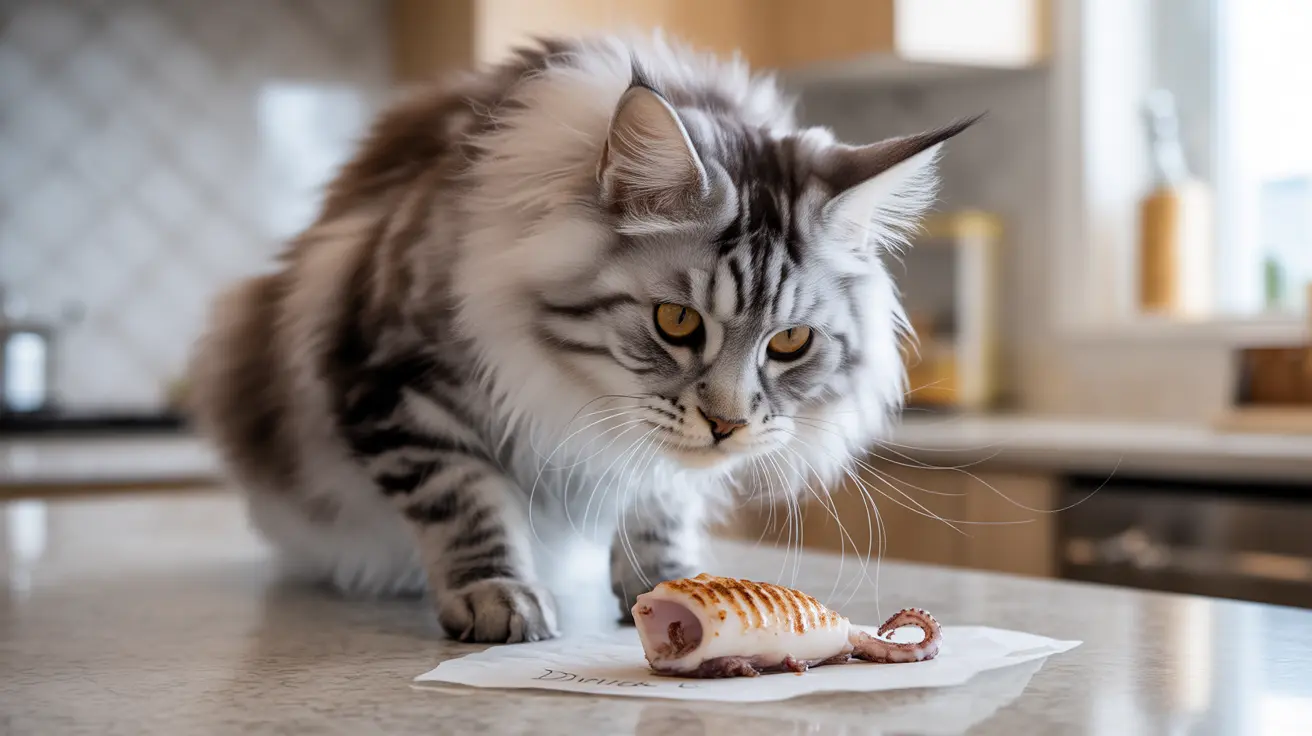As pet owners explore diverse protein sources for their feline friends, many wonder about incorporating seafood like squid into their cat's diet. While cats are natural carnivores, not all protein sources are created equal when it comes to feline nutrition. Let's dive deep into whether squid is a beneficial addition to your cat's menu and how to serve it safely.
Understanding the pros and cons of feeding squid to cats is crucial for making informed decisions about your pet's diet. While squid can offer some nutritional benefits, there are important guidelines and precautions to consider before sharing this seafood with your feline companion.
Nutritional Benefits of Squid for Cats
Squid offers several nutritional advantages when properly prepared and served in moderation:
- High-quality lean protein for muscle maintenance
- Omega-3 fatty acids for coat health and brain function
- Essential minerals including zinc, iron, and magnesium
- Vitamins A, B12, and E for overall health
- Low-fat content compared to many other protein sources
These nutrients can support your cat's overall health when squid is offered as an occasional treat within a balanced diet.
Safe Preparation and Serving Guidelines
The way you prepare squid can make the difference between a healthy treat and a potential health hazard:
Proper Cooking Methods
- Always serve thoroughly cooked squid
- Boil or steam without seasonings or oils
- Cut into small, manageable pieces
- Avoid all fried or breaded preparations
Portion Control
- Limit to small amounts as an occasional treat
- Start with tiny portions to test tolerance
- Monitor for any adverse reactions
Potential Risks and Concerns
While squid can be safe for cats, there are several important risks to consider:
Health Risks
- Raw squid may contain harmful bacteria and parasites
- Thiaminase enzyme in raw squid can cause vitamin B1 deficiency
- Possible choking hazard if not properly prepared
- Risk of digestive upset or allergic reactions
When to Avoid Squid
- Cats with known seafood allergies
- Pets with sensitive stomachs
- Those on prescribed dietary restrictions
- If your cat has difficulty chewing or swallowing
Frequently Asked Questions
Is squid safe for cats to eat and how should it be prepared?
Yes, squid is safe for cats when properly cooked without seasonings or oils. Always serve it thoroughly cooked, cut into small pieces, and only as an occasional treat. Never serve raw or seasoned squid.
What are the health benefits of feeding cooked squid to my cat?
Cooked squid provides lean protein, omega-3 fatty acids, and essential vitamins and minerals. These nutrients can support muscle health, promote a healthy coat, and contribute to overall wellness when served in moderation.
Why should I avoid giving my cat raw or seasoned squid?
Raw squid can contain harmful bacteria and parasites, while the thiaminase enzyme in raw squid can lead to vitamin B1 deficiency. Seasoned squid often contains ingredients toxic to cats, such as garlic, onions, or excessive salt.
How can I safely introduce squid into my cat's diet without causing allergies or choking?
Start with a tiny portion of plain, well-cooked squid cut into small pieces. Monitor your cat for any adverse reactions for 24 hours. If no issues occur, you can occasionally offer small amounts as a treat.
Can feeding squid too often harm my cat or affect its regular diet?
Yes, excessive squid consumption can lead to nutritional imbalances, potential thiamine deficiency, and may cause your cat to become picky about regular food. Keep squid as an occasional treat, not a dietary staple.
Conclusion
While squid can be a safe and nutritious treat for cats when properly prepared, it should never replace a balanced, commercial cat food diet. Always consult with your veterinarian before introducing new foods, and remember that moderation is key to maintaining your cat's health and wellbeing.






